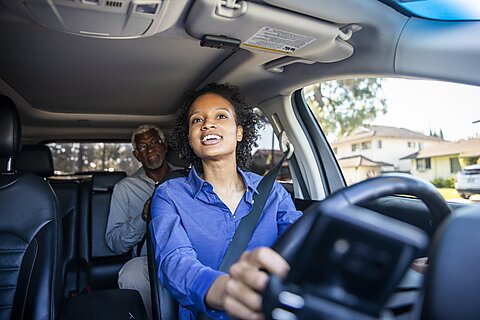In recent years, the ride-hailing company Lyft has celebrated Election Day by offering a one-day discount of $10 to all riders who enter an election-themed code (for the November general election it was “VOTE24”).
At the same time, Rideshare2Vote, a nonprofit whose broader mission focuses on increasing turnout among Democratic and Progressive voters, offered completely free rides to polling places.
Both offers prompted complaints to the Georgia State Election Board alleging that the companies had violated Georgia’s prohibition of financially inducing voting (O.C.G.A. § 21–2‑570).
The result?
The Board voted, 3–1, that Lyft likely violated the law.
And it voted unanimously that Rideshare2Vote had NOT violated the law.
It’s a head scratcher that likely leaves Georgians confused as to the law.
The Law in Question
O.C.G.A. § 21–2‑570 reads:
Any person who gives or receives, offers to give or receive, or participates in the giving or receiving of money or gifts for the purpose of registering as a voter, voting, or voting for a particular candidate in any primary or election shall be guilty of a felony.
The law seems to require a certain level of intent—it must be “for the purpose” of registering or voting.
Lyft undoubtedly read the law and therefore stipulated that the Election Day discount “offer is not intended to induce, nor is it conditioned on, the act of voting, or voting for or against any particular person or measure.”
Yes, the promotion is only for Election Day, and Lyft very much advertised it in the context of civic responsibility (“Lyft believes transportation access should never be a barrier for any citizen seeking to vote … and we’re proud to encourage riders and drivers to exercise their fundamental right to vote, regardless of income, zip code, or political affiliation.”)
But Lyft did not take any further steps to tie the ride discount to voting. No proof-of-voting requirement. No “Who are you voting for?” quiz. No candidate tie-ins. Just a discount anyone could use, whether they used it to go to the ballot box or the grocery store across the street. Drivers might not even know if the rider is using the discount.
Rideshare2Vote’s goal is far more explicit. It exists solely as “your transportation partner every election.” And ideally, its rides are for “turning America Bluer,” but in practice, it accepts everyone who requests a ride.
And yet the Board took issue with Lyft’s discount program, but not Rideshare2Vote.
The Board’s Reasoning:
At its July 29 meeting, one member of the State Election Board asked if the Lyft discount was available statewide.
It was.
That same member worried that Atlanta-area media outlets might have given more coverage to the Lyft discount than in rural areas. A different board member similarly questioned if all Georgians had equal knowledge of the discount: “I would … recommend Lyft … perhaps it could be posted on the Secretary of State’s Help Me Vote website….”
Never mind that Lyft doesn’t control the Georgia media market or the Georgia Secretary of State’s website. Neither of these questions pertains to an analysis that is rooted in the statute. The law does not state that financial inducement for voting is okay if it is widely and equitably advertised. And if the Board is truly concerned about disparate impact, giving away rides for free through an organization whose stated mission is to serve Democratic and Progressive voters creates a far greater disparity than Lyft offering a neutral discount to any rider.
Discounted vs. Free?
So what are we left with? Is it that Lyft discounted its rides, whereas Rideshare2Vote’s rides were free?
That seems a silly distinction. All economists can tell you that there’s no such thing as a free lunch, and indeed, it seems that donors underwrote the Rideshare2Vote program.
Does it mean that Lyft could avoid trouble simply by making rides on Election Day free instead of discounted?
Clarity Needed
The Georgia Supreme Court ruled in 1979 that Georgia’s law prohibiting vote buying is not so vague as to render it unconstitutional (King v. State, 244 Ga. 536, 261 S.E.2d 333 (1979)).
But if that’s the case, then the Board of Elections needs to clarify how Lyft likely violated the statute, but Rideshare2Vote did not. I can’t be the only one confused.
(Thanks to Josh Heywood for his help on this post.)















